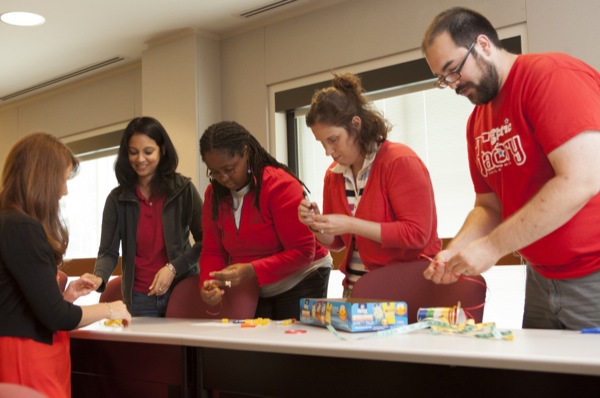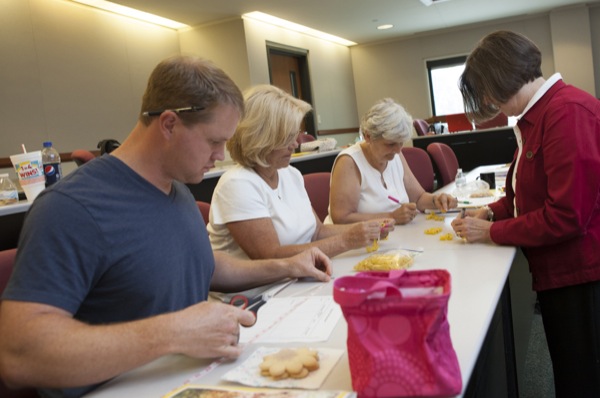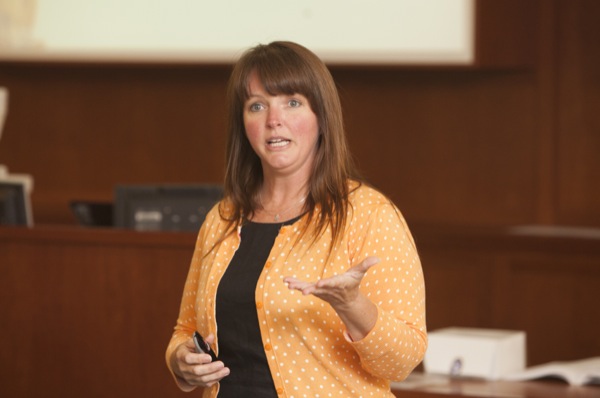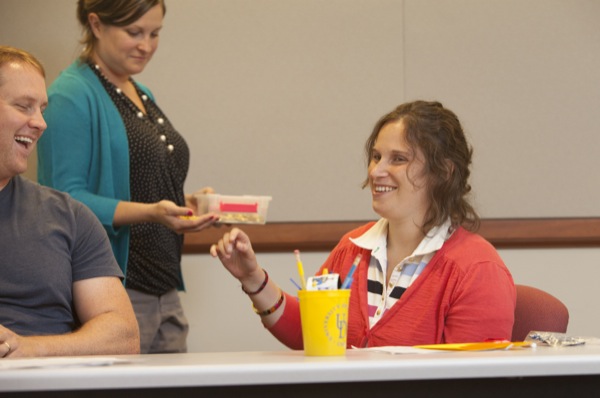


Inside MAEEE
UD program designed to develop dynamic economic educators
3:29 p.m., Aug. 9, 2013--“This is the top of the heap,” said Kenneth Zarda, a student in the University of Delaware’s master of arts in economics and entrepreneurship for educators (MAEEE) program. “When other teachers find out you finished this program, they know you’ve been somewhere.”
Zarda is one of just 26 students selected for admission to this year’s MAEEE class.
Campus Stories
From graduates, faculty
Doctoral hooding
The MAEEE is designed to strengthen participants’ economic, entrepreneurial and financial literacy content, and also provides methods on how such content can be effectively taught in the primary and secondary school classroom.
It is just one of many programs administered through the Center for Economic Education and Entrepreneurship (CEEE) in UD’s Alfred Lerner College of Business and Economics.
The CEEE is dedicated to promoting high quality economic, personal finance and entrepreneurship education, and its staff are firm believers in the multiplier effect: the power of motivated educators to impact the lives of their students and to exponentially impact students by influencing other teachers in their communities.
According to CEEE staff, the MAEEE program is one of the best examples of how powerful the multiplier effect can be. MAEEE graduates have gone on to become part of a global network of educators prepared to instruct other teachers in similar methods and content, and are change agents who have enabled the CEEE to expand its mission beyond the state of Delaware.
After completing an online module in June, students came to UD’s Newark campus last month to complete the first of two summer sessions. Students took classes, modeled effective workshops for their peers and proposed plans for individual implementation projects they intend to take home and conduct in their own schools, districts and regions.
Zarda, who teaches advanced placement (AP) economics, AP government and U.S. history at Chaparral High School in Scottsdale, Ariz., plans to start an after-school economics club. His goal is to provide a more in-depth understanding of economics for students taking the AP economics exam in the spring.
After providing Zarda with feedback, Melissa Ackerman, a government, U.S. history and AP economics teacher at Northwest Career and Technical Academy in Las Vegas, Nev., shared her own idea of creating a website for her flipped AP microeconomics classes.
A flipped class requires students to conduct work in advance of class. For example, on Sunday night a student might visit a website and watch a 10-15 minute lecture video and complete activities for Monday’s class. On Monday, Ackerman would not lecture her students but instead lead a discussion on Sunday night’s lesson. This technique ensures students come to class knowledgeable about the material and ready to discuss it.
Brian Nabb, an AP government, economics and personal finance teacher at Smyrna (Del.) High School, plans to use workshops to train middle school social studies teachers in his district. It is not uncommon for teachers to have an education degree versus a social studies or economics degree, and they may have skipped economics related units entirely. Nabb’s workshops address this gap.
Other projects presented by the MAEEE students included strategies for opening a credit union within a high school; methods for creating a series of 12-minute lectures for economics teachers; and plans for starting financial literacy programs for adults and students in low-income neighborhoods.
Article by Christopher W. Pinti
Photos by Ambre Alexander











